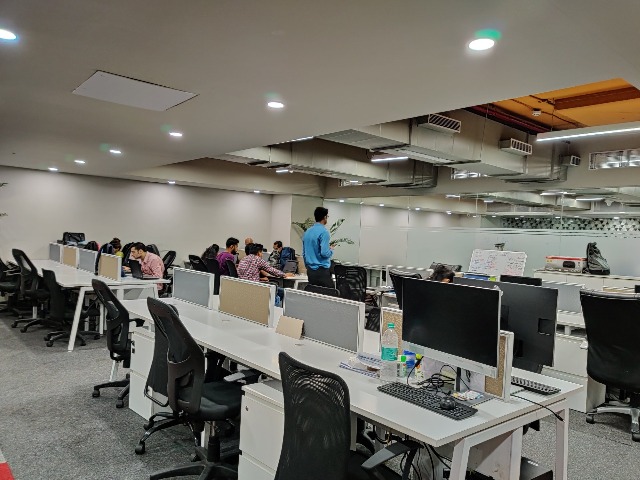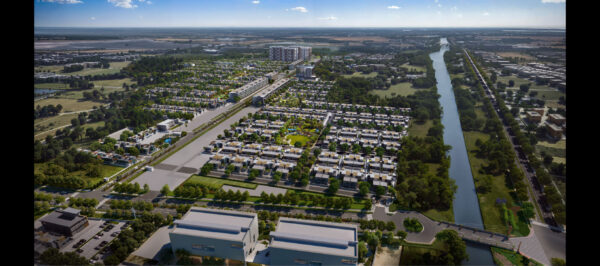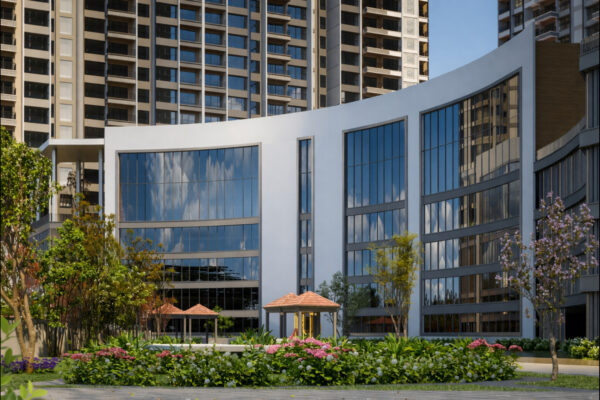Hybrid work culture and managed workspaces – A match made in heaven
Sanjay Chatrath, Managing Partner – India, Incuspaze Solutions
Until 2020, Indian workplaces were still in the nascent stages of adopting something that people popularly called 'remote work' in the West. Till then, only a handful of organisations recognised this concept and freelancers, entrepreneurs, and start-up builders essentially adopted it. With the onset of the pandemic, the entire conversation around 'how to work' changed globally. Indian enterprises could broadly adopt the new dynamics with ease, with some hiccups, of course.
Over the last two years, the workforce has gotten adept with the hybrid working mechanism and is comfortable operating within its periphery while being productive. Therefore, while companies have started urging their employees to get back to the office, organisations will also have to factor in the benefits of this new dynamic. Moreover, most employees across the globe are now inclined towards a hybrid working model as it provides them with the flexibility they expect out of any working model.
As we enter the endemic phase of the pandemic, organisations now have opportunity to restructure their working patterns and workspaces to keep up with the paradigm shift in the working culture. They can build an environment that can cater to employees working from office and those working from home to enhance the value system and productivity of the organisation. Adopting a suitable model and implementing the appropriate policies can boost collaborative and productive working. However, the organisation has to be very particular about the sustainability of its operational patterns amidst this emerging model. According to a survey by Gartner, all around the globe, almost one-third of freshly recruited remote or hybrid employees think that their company's culture has evolved since they started working from home. To balance company requirements and employee satisfaction, many organisations are considering an alternate route involving downsizing their headquarters and expanding into cities with a high concentration of employees through managed spaces.
It is evident that the hybrid model of working has etched itself in the history of the enterprise ecosystem and is here to stay for the foreseeable future. Owing to that, the growth of managed workspaces has drastically escalated in the last few years. Several cities around the globe are experiencing exponential growth in the number of managed workplaces and now all sizes of enterprises are shifting towards the same model.
Organisations' shift towards managed workspaces has helped them greatly minimise problems like extended lease lock-in periods, a traditional work environment, and others. In managed workspaces, everything is taken care of, from researching design to curating office operations and management of the workplace. Contemporary workspaces are flourishing with 360-degree management models that allow organisations to focus on their core business. The professionally trained staff makes sure that workspaces are running smoothly.
With benefits like higher cost transparency, increased market reach, and swift business growth, organisations across various sectors are reaching out for this ready-made solution to manage costs and expand their reach. Managed workspaces have equipped themselves with services that can cater to any working model and remain profitable for employees and organisations. According to a report by Cushman and Wakefield India, the escalated demand of managed workspaces gets explicitly projected as the share of the managed workspaces segment in total office leasing has grown to 9.4 per cent last year against 8.1 per cent growth in the previous year.
With companies realising the importance of flexibility in work culture and how it is directly proportional to the employees' productivity, the hybrid model is the future of working and managed workspaces can offer that flexibility and lucrativeness to the employees, which internally assists the organisation in becoming a profitable entity. Furthermore, hybrid workplaces enable employees to maintain their work-life balance without managing workaround fixed hours in the office. As a result, numerous employees feel less stressed or anxious, displaying increased productivity in the hybrid work setting. The benefits managed workspaces offer an organisation include work-life balance, minimal lease lock-in period, negligible capital expenditure, fully managed mechanism, and personalisation. It also provides the required flexibility and environment, making managed workspaces adopt hybrid and work culture and function accordingly.
Managed workspaces with a hybrid working mechanism ensure the working environment and productivity does not disrupt while offering flexibility to an organisation and its employee. There are multiple reasons to justify why managed workspaces compliment hybrid work culture. Flexibility is the core amenity a hybrid work culture offers to an employee and the organisation and managed workspaces, structured to provide an environment and amenities that cater to all. Managed workspaces with hybrid work-culture are lucrative in a way where employees can visit 2-3 days to the office and work the rest of the week from home, which enhances the employee's productivity and refrains the monotonous nature of work. Managed workspaces like Incuspaze provide employees with a home-like comfortable environment with personalised interiors, furniture, and other different amenities. The other service they offer which make the functioning swifter is Local Hubs. Managed workspaces provide employees with office hubs near their homes to make working more frictionless. Such structuring saves the employees' travel time commute expenses while assisting them in managing a work-life balance while encouraging a hybrid working culture and delivering maximum productivity. The prime reason why organisations all around the globe prefer these functional, accessible and inclusive workspaces is the near-home office hub feature provided by managed workspaces like Incuspaze.
Post pandemic health has become a significant factor while choosing a workspace. Maintaining employees' mental stability and physical health can only be attained in office structures designed with adequate space, ventilation, accessibility, and common areas. Such structured work cubicles offer greater access for co-workers to easily communicate with each other, helping maintain a healthy work environment. An employee will not deliver his best if he is in constant mental flux. Hygiene is the factor that gives managed workspaces an edge over other alternatives. They follow all the health guidelines and provide an appropriate working atmosphere with permanent staff, ensuring office and personal hygiene.
Primarily to reduce their expenses and increase productivity, several enterprises across the globe have shifted their focus to choosing and investing in the accessible and modern building layouts of managed workspaces. Furthermore, they upgrade themselves periodically to cater to this hybrid work culture. Managed spaces like Incuspaze give longevity to this form of the new-age work culture while also encouraging the wellbeing of the employees and profitability of the organisation.
















